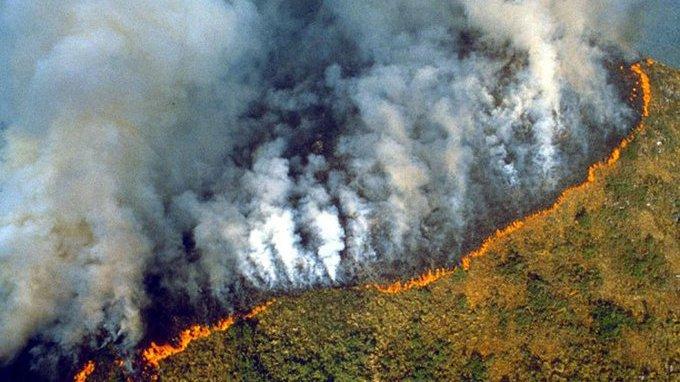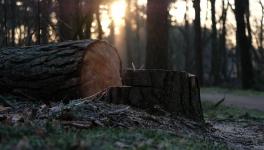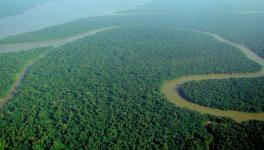Amazon Forest Fires Continue Unabated Amid Pandemic, Raise Risk of Future Outbreaks

Image Courtesy: Twitter
According to a NASA run project Global Fire Emission Database that combines satellite information and vegetation productivity fires in the Amazon rainforest in the year 2020 has surpassed what was observed in 2019. In fact, 2020 has witnessed the worst fire since at least 2012, when the monitoring satellites were first installed.
Earlier, in 2019 by the month of October, thousands of fires had burned down nearly 7600 kilometres worth of forest area, which had led to the conclusion that it was probably the worst year as far as destruction of Amazon rainforest is concerned. The weakening of environmental laws and thus, paving the way for private enterprises setting up their businesses in the Amazon under President Bolsanaro’s regime has led to a wide scale deforestation. Alongside, fires in the deep forest have also risen unprecedentedly.
In July this year, Amazon fire in Brazil has increased by a massive 28% as compared to July, 2019. Continuing the trend, fires in September first week has doubled than it was in September 2019. Brazil’s National research space agency INPE has confirmed the September data.
The NASA supported project estimates that, so far this year, 574,000 active fires could be detected by the Suomi-NPP satellite, which is way higher than in 2019—509,000. More worrisome is the fact that 88% of these fires have been detected in just the last 60 days.
With the pandemic ongoing, the surge in Amazon fires has mostly been overlooked in international level, probably due to overwhelming world attention on COVID-19. Nonetheless, Amazon Rainforest destruction has profound impacts not only on the global climate, but also on global health.
COVID-19, which has wrecked the world, is a form of zoonotic disease—that spreads from other animals to humans. The virus SARS-CoV-2 traces its origins to bats which jumped to humans through a yet unknown path. Zoonotic diseases are on rise-- Ebola, NIPAH, SARS and MERS outbreaks are some such diseases which the world has witnessed recently. One of the profound reasons of such an increase in zoonotic diseases is the loss of biodiversity and habitat fragmentation of wild lives. The loss of biodiversity and habitat loss increasingly expose humans to wildlife and thus increases the contacts with the wildlife. This, in turn increases the chance of pathogen spill over from other animals to humans.
Dense forests and higher biodiversity levels offer a sort of shield to humans from getting in contact with pathogens. This is known as the “dilution effect” – where species vary in susceptibility to pathogens having potential infectious characters, higher biodiversity leads to lower prevalence of infection in human.
On the other hand, microbial pathogens can more likely transmit to humans when habitat loss and biodiversity destruction happens. Wherever the variety of mammals increases, the parasitic organisms have a greater chance to find a host other than humans. Habitat loss and the concomitant negative impact on biodiversity increases the chance of emergence of newer zoonotic diseases.
Amazon rainforest covers an astounding area of nearly 8 million square kilometres and is home to a huge biodiversity. Loss of the forest would mean habitat fragmentation and destruction of biodiversity. Moreover, setting up of business ventures in the deep forest increases the likelihood of humans getting in contact with other wildlife.
Get the latest reports & analysis with people's perspective on Protests, movements & deep analytical videos, discussions of the current affairs in your Telegram app. Subscribe to NewsClick's Telegram channel & get Real-Time updates on stories, as they get published on our website.
























